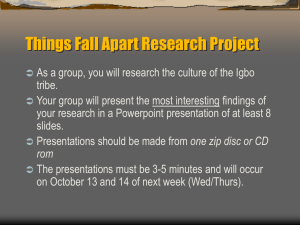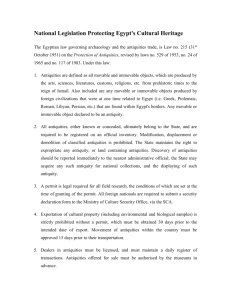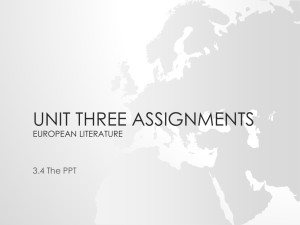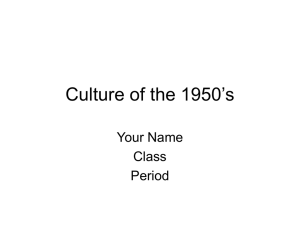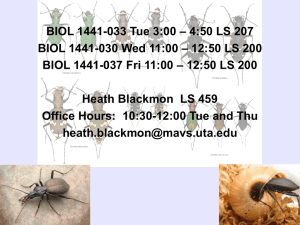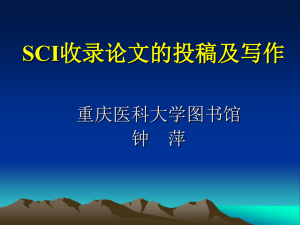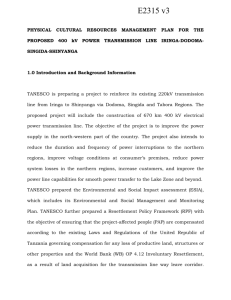ppt - Conflict Antiquities
advertisement
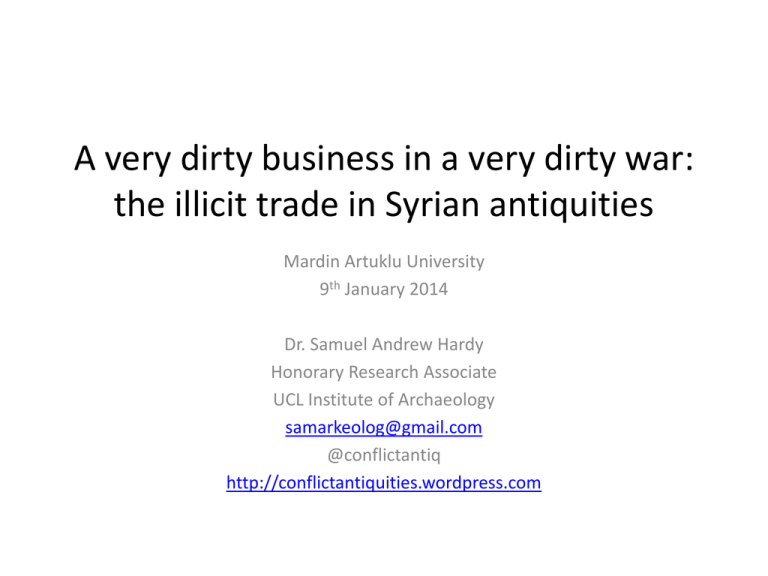
A very dirty business in a very dirty war: the illicit trade in Syrian antiquities Mardin Artuklu University 9th January 2014 Dr. Samuel Andrew Hardy Honorary Research Associate UCL Institute of Archaeology samarkeolog@gmail.com @conflictantiq http://conflictantiquities.wordpress.com Syria is the worst-case scenario 1. How much of its cultural heritage is being stolen? 2. Who is looting its archaeological sites and historic buildings? 3. Who is smuggling the looted artefacts? 4. Who is buying these conflict antiquities? What is happening? ‘Conditions are impossible to verify due to the inaccessibility of archaeological and other sites in Syria’ (archaeologist-journalist Joanne Bajjaly, 2012) ‘We don’t know what’s happening there’ (UNESCO Director-General Irina Bokova, 2013) Apamea (20th July 2011) © Arce (2012: fig. 1) Apamea (4th April 2012) © Arce (2012: fig. 2) Official history-in-the-making There is an ‘international criminal gang.... [that] specialise[s] in the theft of manuscripts and antiquities, as well as the robbery of museums, safes and banks [bande criminelle international.... est spécialisé dans le vol des manuscrits et des antiquités, ainsi que dans le pillage des musées, des coffres et des banques]’ (PM Adel Safar, 2011) Antiquities mafias Do ‘armed archaeological mafia gangs’ from Lebanon, Turkey and Iraq ‘orchestrate most of the looting’ (Director-General of Antiquities and Museums, Maamoun Abdel-Karim, cited in van Tets, 2013)? Some non-combatant ‘armed groups’ are ‘protecting workers... who are digging non stop’ (former Director of Excavations, Michel Makdissi, cited in Bajjaly, 2013). State complicity Tell Hamoukar was looted ‘under the noses of the security services [sous le nez des services de sécurité]’ (Hadidi, 2011) ‘it is difficult to commit such crimes without complicity at the highest level [of the state] with security centre chiefs... and the blessing of the Syrian regime’ (ibid.) Looted from Palmyra, smuggled to Beirut – a second-century Roman bust © Marc Deville (in Jaber and Arbuthnott, 2013) Looters and smugglers • • • • • • • • Trapped civilians Escaping civilians Opportunistic, “entrepreneurial” criminals Organised criminals (antiquities mafias) Assadist military forces Islamist rebel forces Secularist rebel forces Rebel-allied foreign military and security forces Regime looting/trafficking ‘Everybody does it.... every katiba (military camp) [Tout le monde s’y est mis.... chaque katiba]’ (multi-commodity smuggler Ayham, cited in Mabillard, 2013) ‘Even the regime is dealing [in] antiquities, because they are collapsing economically. They need cash to pay the shabiha [henchmen/thugs]’ (antiquities smuggler Abu Jabbar, cited in Baker and Anjar, 2012) Islamist rebel looting/trafficking ‘Nusra gets funding from Saudi individuals so [their] supply [of weapons is] constant’ (Arab diplomat, cited by Danahar, 2013), however... ‘jihadists [have taken] control of the traffic [les groupes djihadistes armés font la loi et ont pris le contrôle de la contrebande]’ (multicommodity smuggler Ayham, cited by Mabillard, 2013) Secularist rebel looting/trafficking ‘Some days we are fighters; others we are archaeologists’ (Free Syrian Army fighter Jihad Abu Saoud, cited by Luck, 2013) ‘The rebels need weapons, and antiquities are an easy way to buy them’ (multi-commodity smuggler Abu Khaled, cited by Baker and Anjar, 2012) Looting is ‘a vital source of funding’ (FSA leaders, paraphrased by Luck, 2013) International complicity ‘there is collusion between security forces on each side of the border’ (Lebanese Office of International Thefts’ Lt. Col. Nicolas Saad, cited in Bajjaly, 2013) ‘Turkish customs officials close their eyes to the traffic in Syrian objects [Les douaniers turcs... ferment les yeux sur le trafic d’objets syriens]’ (multi-commodity smuggler Ayham, cited by Mabillard, 2013) ‘smuggling antiquities [through Turkey] is the route to easy money’ (ibid.) A very dirty war Turkey is ‘involved in a very dirty war’ (Ceylanpınar mayor İsmail Arslan, cited in Zurutuza, 2013) Turkey is the ‘nerve centre’ of Syrian rebels’ arms supply (Doherty and Bakr, 2012) Turkish ‘intelligence officers escorting the [Syrian supply] convoy prevented [Turkish police] from searching its contents on the grounds that the load was a “state secret”’ (Albayrak, 2014) A very dirty business Antiquities ‘are transported [between Syria and Turkey] by airplanes’ (Lt. Col. Saad, cited in Bajjaly, 2013) 22nd September 2011: Turkish airspace closed to military suppliers to Syrian regime 14th October 2012: all civilian flights between Syria and Turkey banned Turkish-run, Saudi, Qatari and Jordanian military flights persist (Chivers and Schmitt, 2013; Sunday’s Zaman, 2013)
